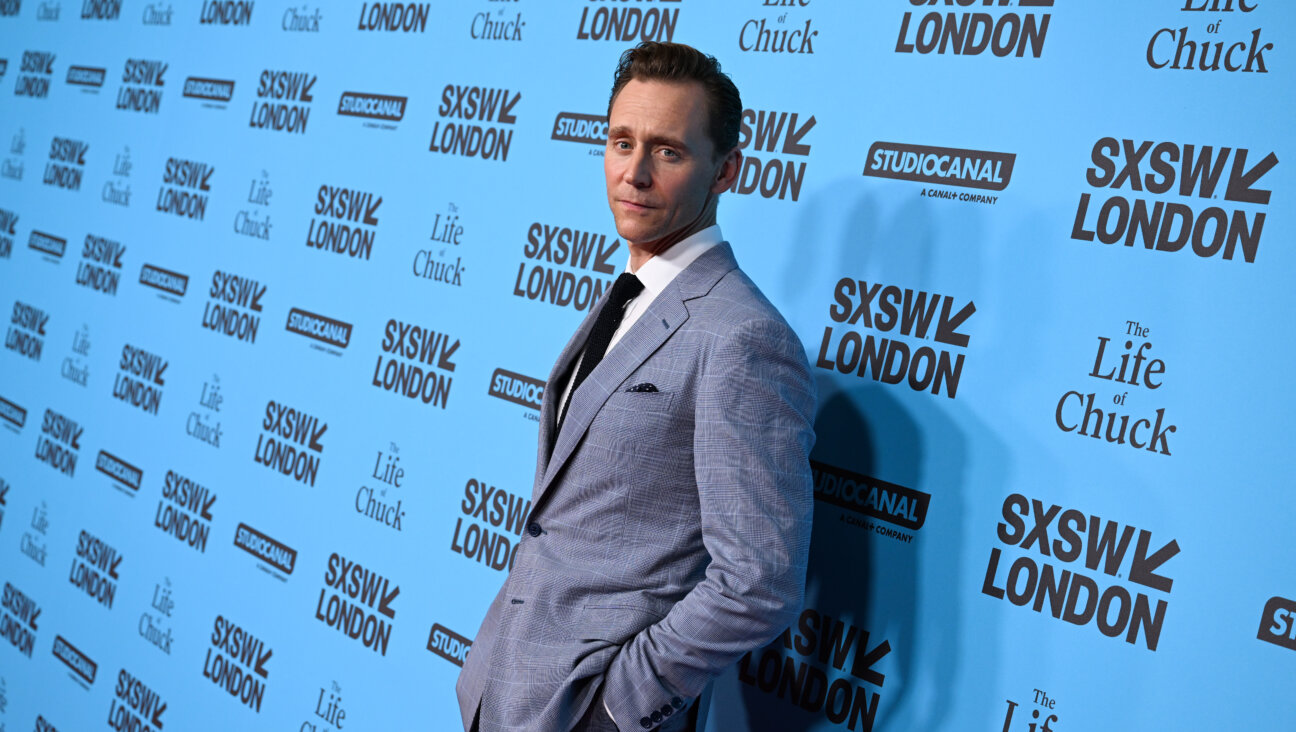Stanley Kubrick Explains The Ending Of ‘2001’ (Kind Of)

2001: A Space Odyssey Image by Courtesy of Contemporary Jewish Museum
Towards the end of his career, Stanley Kubrick began presenting some of the less attractive qualities of a genius. His hygiene became dubious, he was famously gruff with reporters, allegedly abusive to his actors and notoriously gnomic when it came to interpretations of his work. So a recently unearthed clip of him explaining one of his oeuvre’s biggest head scratchers is a pretty big deal.
The clip posted yesterday on Open Culture, is from 1980, the year he nearly drove Shelley Duvall crazy while filming “The Shining.” It shows journalist Jun’ichi Yaoi on the phone, quizzing Kubrick about the final scene of 1968’s “2001: A Space Odyssey” where protagonist Dave is shown languishing away in a sterile, 18th-century style room. In the footage of the interview, Kubrick is off screen (though he apparently was in the studio at the time) which, along with loud beeping in the middle of the video, lends a bit of a HAL-like menace to his answer—but answer Yaoi he does! Still, he remains a tad cryptic.
Here’s his response:
“When you just say the ideas they sound foolish, whereas if they’re dramatized one feels it, but I’ll try. The idea was supposed to be that he is taken in by god-like entities, creatures of pure energy and intelligence with no shape or form. They put him in what I suppose you could describe as a human zoo to study him, and his whole life passes from that point on in that room. And he has no sense of time. It just seems to happen as it does in the film.
They choose this room, which is a very inaccurate replica of French architecture (deliberately so, inaccurate) because one was suggesting that they had some idea of something that he might think was pretty, but weren’t quite sure. Just as we’re not quite sure what to do in zoos with animals, we try to give them what we think is their natural environment.
Anyway, when they get finished with him, as happens in so many myths of all cultures in the world, he is transformed into some kind of super being and sent back to Earth, transformed and made some sort of superman. And we have to only guess what happens when he goes back. It is the pattern of a great deal of mythology, and that is what we were trying to suggest.”
The reply resembles one he’d given in the past, but adds a hint as to his influences. It seems Kubrick owes a debt to Nietzsche and mythologist Joseph Campbell’s monomyth theory, which proposed that all cultures share one hero’s journey narrative. Kubrick of course, was a great influencer in his own right, and it’s possible that his human zoo conceit inspired Kurt Vonnegut, who published “Slaughterhouse Five” a year after the premiere of “2001.”
Of course, as has been noted in this publication Kubrick’s Jewish roots informed the shape of the film as well. One mystery (kinda) solved, we just need to wait for the cut-for-time scene of HAL 9000’s bar mitzvah to turn up.
PJ Grisar is the Forward’s culture intern
























